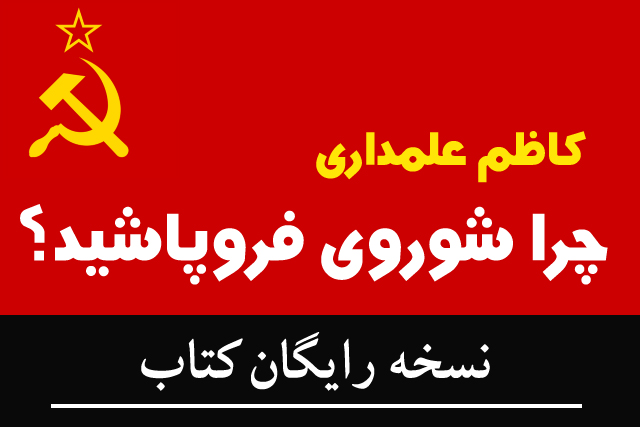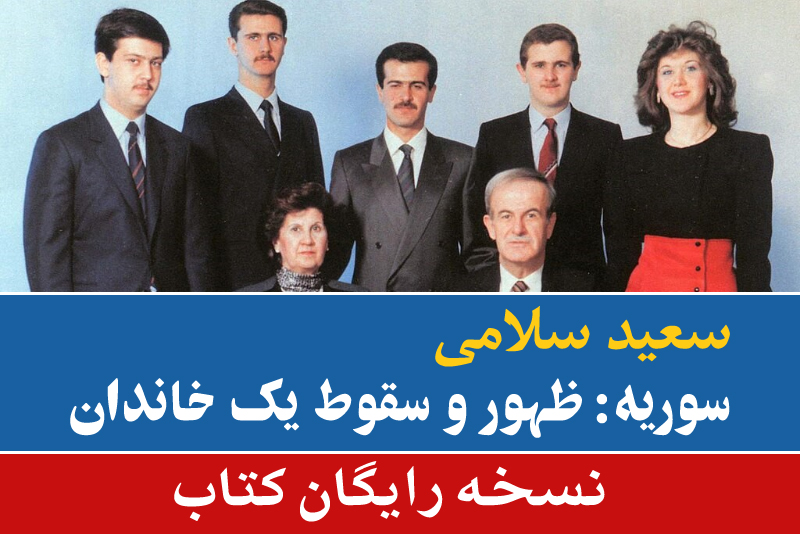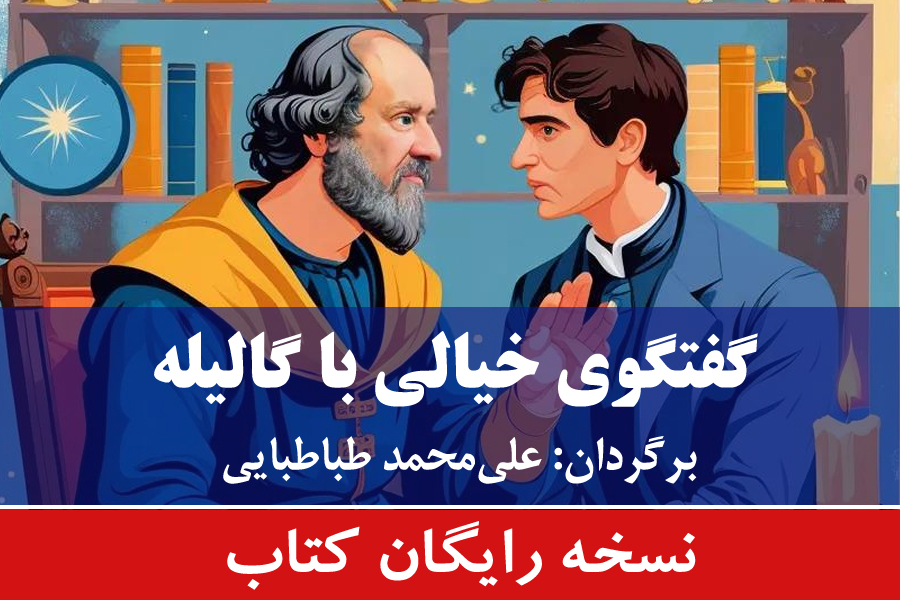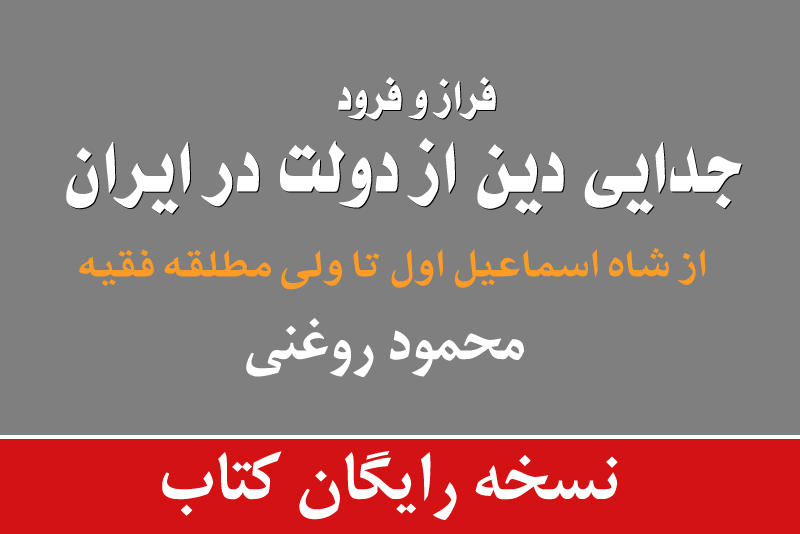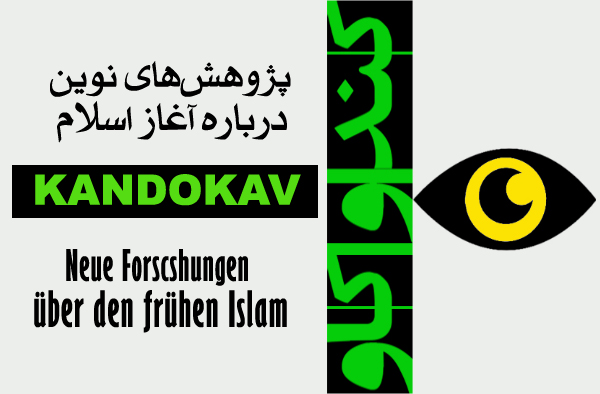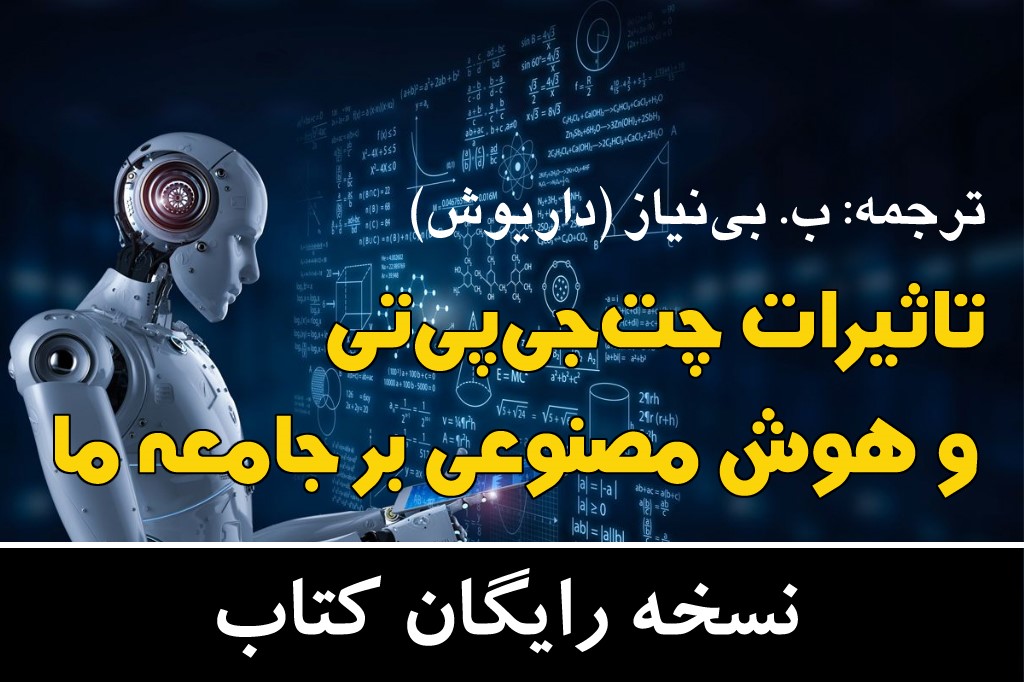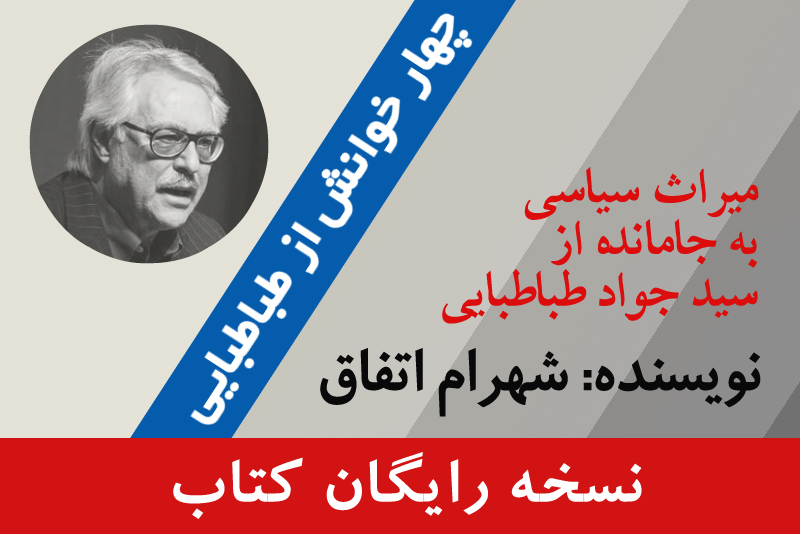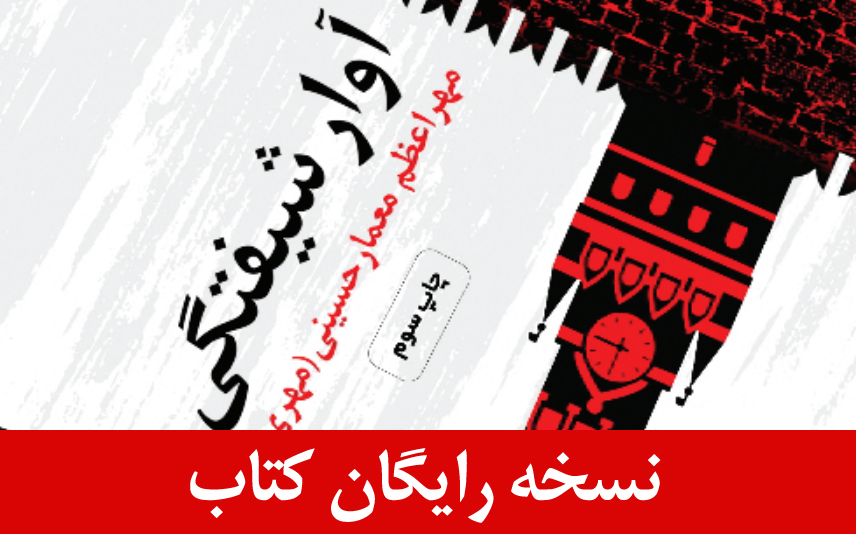| صفحه نخست | خبر و گزارش | سياست | انديشه | فرهنگ و ادبيات | زندگی | محیط زیست | RSS |
iran-emrooz.net | Wed, 02.03.2011, 23:04
نامهای برای نوال سعداوی نویسنده و فمینیست مشهور مصری
مصر هشت مارس را چگونه خواهد گذراند؟
عفت ماهباز
مبارک رفت، همانگونه که "شاه رفت" و هر دیکتاتوری هم سرانجاتم باید برود. آیا مصر آزاد شده است؟!
نوال(۱) عزیز، همرزم و همراه زنان، در آستانه هشت مارس، روز جهانی زن، میخواهم از نگرانیها و دغدغههای جنبش زنان ایران، خودم و هم نسلانم برای سرنوشت زنان مصر و منطقه سخن بگویم با تو که در آموختن الفبای فمینیسم آموزگار ما بودی. از یک سو سخن از مدارا با زنانی که سرنوشتشان را دین رقم زده میگفتی، از سوی دیگر ستیزت با بنیادگرایی در دفاع از سکولاریزم انسان را شگفت زده میکرد. فمینیسم اسلامی با نام تو و فاطمه مرنیسی(۲) در دنیا رقم زده شد و بحثهای زیادی را به دنبال داشت.
جرقه مبارزه با دیکتاتوری برای کسب آزادی و از بین بردن فقر، این بار از تونس آغاز شد، سپس به تمام منطقه خاورمیانه، دامن گسترد، در مصر شعله ور شد و مردم مصر را در مرحلهای به پیروزی رساند. بسیاری از فعالین جبنبش زنان، از آغار شروع مبارزات مردم در مبارزه با دیکتاتوری، با خوشحالی آن را دنبال کردهاند، اما بسیاری چون من با نگرانی از خود میپرسند چه خواهد شد؟ زنان مصری در این تحولات چه سرنوشتی خواهند داشت؟ آزاد و برابر و یا آزادیشان آنها از آنچه که هم اکنون در قوانین دارند محدودتر خواهد شد و یا.... آیا مصر به دنیای آزاد خواهد پیوست؟
سعداوی عزیز، در مصاحبه با بی بی سی جهانی، شور و شوقت برای جنبشی که در خیابانهای مصر راه افتاده را همه دنیا به چشم دیدند که میگفتی: "هشتاد سال سن دارم و شادمانم، چیزی که رویایش را داشتم. به چشم میبینم"(۳) بر بال آرزوها در پرواز بودی، همانگونه که زنان ایرانی در سال ۱۳۵۷، زمانی که "شاه رفت"، شور و شوق شان، از رفتن دیکتاتور وصفناشدنی بود.
امروز هم زنان ایرانی با همبستگی، ناظر وجد و شادی مردم مصر هستند اما آموزگار عزیزم میخواهم بگویم آن دختر نوزده ساله، سال ۱۹۷۹، که پر شور و بی قرار بعد از رفتن شاه، سوار وانتی شد و همراه مردم در کوچه پس کوچههای تهران فریاد زد "بعد از شاه نوبت امریکاست" این روزها همچون همراهان دیگرش در ایران و جهان، بسیار نگران است. البته نه نگران رفتن دیکتاتورها: "مبارک رفت"همانگونه که "شاه رفت"، که هر دیکتاتوری سرانجاتم باید برود. اما آیا مصر آزاد شده است؟
در ایران ما در زمان پیروزی انقلاب بهمن، آزادی واقعی مینمود. هنوز پس از گذشت سی دوسال، علیرغم گذشت بسیاری از مسایل بر ما، حس آن لحظات به شکل بسیار باشکوهی برایمان باقی مانده. اما امروز در تبعید برایتان مینویسم مبادا برسر زنان مصر همان بیاید که بر سر ما آمد و مبادا آنها دچار سرنوشت ما شوند. این نگرانی بزرگ من و همه زنانی است که در دنیا شاهد درد و رنجهای زنان ایران بودهاند. چگونه جنبش مردم را در مصر و تونس منطقه پیش ببریم که انقلاب دست تندروهای فناتیک نیافتد و زنان مصری به سرنوشت زنان ایران دچار نشوند.
در مصاحبهتان گفتهاید: «ما از بنیادگرایی اسلامی نمیترسیم. این اعتراضات ربطی به چپ، راست، اسلام گرا یا هر جنبش سیاسی دیگر ندارد. هیچ حزب سیاسی این انقلاب را شروع نکرده است، این یک جنبش خودانگیخته و مردمی است و متعلق به جوانان است و نه هیچ جریان سیاسی».
نوال عزیز، شاید بگویی ایران با مصر تفاوت بسیار دارد. ایران شیعه است و مصریها سنی مذهبند. اما آنچه در مورد حضور مردم و ویژگیهای این جنبش بر شمردی در ایران هم همان آغازچنین طی شد و "شاه رفت". و آیت الله خمینی امد با وعده دموکراسی و آزادی زن. آیت الله خمینی گفت قصد حکومت ندارد. آقای بازرگان را که با فکل کروات بود به نخست وزیری برگزید.
اخوان المسلمین بیش از هشتاد سال در مصر سابقه مبارزاتی دارند. آنهاهم امروز میگوید خواهان دموکراسی هستند و قصد حکومت ندارند و آقای البرادعی راهم به عنوان نمایندهشان میپذیرند اما چند روز بعد، جزو اولین کسانی بودند که برای مذاکره با مبارک حاضر شدند. دوست دارم بخشی از مشاهداتم در تظاهراتی در مونترال کانادا را برایت بازگویم. همانگونه که در مصاحبه بی بی سی از مردم جهان خواسته بودید: «از ما حمایت کنید! مقابل سفارت مصر در کشورهایتان بروید و حمایت خود را از مردم و خواستهایشان نشان دهید.» ما چنین کردیم.
برای کاری به شهر مونترال رفته بودم. روز جمعه پنجم فوریه به همراه دوستان ایرانیم برای حمایت و همبستگی با مردم مصر در کنار مصریان زن و مرد به جلوی کنسولگری مصر رفتیم و همراه آنها گاه به عربی، گاه فرانسه و انگلیسی شعار دادیم: لا مبارک، لا مبارک، لا سلیم و همچنین شعارهایی در همبستگی با مردم مصر و تونس، پانصد نفری بودیم. پلاکارتی دستم بود از پرچم ایران رویش بجای آرم جمهوری اسلامی، نوشته شده بود "ایران" و سوی دیگر پلاکارت اعلام همبستگی برای مردم مصر و تونس بود. در میدان شهر ناگهان مردی مصری که چون من در صف شعار میداد، جلو آمد و با تحکم به من گفت "مرگ بر ضد ولایت فقیه"! چرا این پرچم را دارید؟ این پرچم ایران نیست! جا خورده بودم ابتدا متوجه منظورش نشدم پس از چند لحظه گفتم این پرچم من است مال خود، خودم است من هم آمدم برای همبستگی!
با دوستان ایرانی در صف حرف زدم، متوجه شدم آن فرد این تعرض را تقریبا با همه ایرانیان دیگری که در صف بودند روا داشته است آیا او نماینده احمدینژاد یا خامنهای بود که اینگونه با ما سر ستیز داشت؟ هر چه بود او هم یک دردمند گرفتار دیکتاتور بود، آمده بود چون من لا مبارک، لا مبارک میگفت و بیشتر از من در آنجا حق داشت در عینحال از حکومتی چون «جمهوری اسلامی» در ایران دفاع میکرد. آیا نمونههایی از این دست میتواند یک هشدار باشد؟
آیا در قرن بیست و یکم قوانین شریعت میتواند در مصر هم بر سر کار آید؟ آیا ممکن است بنیادگرایی اسلامی بتواند حقوق زنان مصری را توسط مرد سالاران دینی قربانی کند و بر زنان مصر آن رود که در ایران در این سی دو سال رفت؟ همانگونه که در کانادای کاتولیک مذهب دادگاههای شریعه از بیخ گوش زنان مسلمان ساکن کانادا با تلاشهای فعالین زن گذشت و در انگلستان از طریق کلیسا هنوز بحث گشودهایست تا کمک کنند مردان مسلمان از قوانین شریعه در کشورهای اروپایی برخوردار گردند.
آموزگارم نوال عزیز؛ به عنوان یک زن فمینیست ایرانی میخواهم بخشی از تجربیات زنان ایرانی را در همان روزهای اول انقلاب برای شما حکایت کنم. صمیمانه آرزومندم زنان دلیر مصر و تونس و اردن و همه دنیا آنچه که بر سر زنان ایران آمده را بخوانند و بدانند چگونه خواستههایشان را پیش ببرند که نصف مردان محسوب نگردند.
نوال عزیز در انقلاب بهمن ۵۷ ایران همپای زنان ایرانی در شادمانی مان، سهیم بودید ان روزها هنوز "سیمون دوبوار" (۴) مادر فمنیستهای جهان، در فرانسه، در قید حیات بود از طرف او هیئتی مرکب از هفده زن فمنیست از سراسر دنیا برای همبستگی و کمک فکری به زنان، به ایران آمدند.
۲۲ بهمن، ۱۱ فوریه ۱۹۷۹ (درست همان روزی که مبارک رفت، با سی و دو سال فاصله) در ایران انقلاب شد. پانزده روز از انقلاب گذشته بود که آیت الله خمینی با ۴ فرمان عملا برقراری قوانین شریعت را اعلام کرد. هفت اسفند ۵۷ لغو قانون حمایت - خانواده مصوب ۱۳۴۶، دوازده اسفند ۵۷ لغو حق قضاوت برای زنان، پانزده اسفند۵۷ لغو احضار به خدمت سربازی برای زنان و انفصال از خدمت دوره سربازی جاری، شانزده اسفند ۵۷ لزوم داشتن حجاب اسلامی برای کارکردن زنان. اینگونه و با این ۴ فرمان، نیمی از جامعه در بند شدند. در واقع آزادی به بند کشیده شد.
یک روز بعد از این فرمان، هفده اسفند، روز جهانی زن، ۸ مارس ۱۹۷۹ زنان به خیابان آمدند، اولین گروهی که اعتراض را آغاز کرد، زنان وکیل بودند و سپس اتحادیه پرستاران یک پای ثابت این تجمعها شدند. اینها زنانی بودند که میدانستند این "چهار فرمان" یعنی چه. زنان در دادگستری تحصن کردند و درخیابانها فریاد زدند: "ما انقلاب نکردیم تا به عقب برگردیم". آنها معتقد بودند که باید در همان زمان حرفهایشان را به گوش مقامات برسانند. آن زمان که قانون اساسی را که بنویسند دیگر دیر شده است. آنها شعار دادند: "در جبهه آزادی، جای زنان خالی است"، ما حجاب نمیخواهیم، حجاب اجباری است، زنان مبارزه میکنند، زنان زحمتکشاند. لحظه به لحظه گویم، زیر شکنجه گویم، یا مرگ یا آزادی و سرودای ایران را خواندند.
۹ مارس در دانشگاه گردهم آمدند. ده مارس جلوی کاخ دادگستری بودند. ۱۲ مارس از انقلاب و دانشگاه تا میدان آزادی راه پیمایی کردند. زنان میگفتند ما همپای مردان برای انقلاب مبارزه کردهایم. صدها زندانی سیاسی زن در زندانهای شاه بودند. آنها برای اعتراض به رئیس وقت رادیو تلوزیون، صادق قطب زاده برای انعکاس ندادن خبرها، به آنجا راهپیمانی کردند. کمیتهچیهای شکل گرفته بعد از انقلاب، با تیراندازی و خشونت جلوی زنان ایستادند و آنها را روسپی و بدکاره خطاب کردند... و زنان فریاد میزدند "ما نمیترسیم، ما نمیترسیم".
طی یک هفته هر روز پانزده تا بیست هزار نفر زن به خیابانها آمدند، فریاد کشیدند "حق ما حق شماست مردم به ما ملحق شوید". اما هیجان انقلاب چنان هوش از مردم ربوده بود که این صداها را نشنیدند و رادیو تلویزیون هم این واقعه مهم را به درستی انعکاس ندادند. مردم ندانستند چه برسر آزادی آمده. عدهای با چماق و الله اکبر گویان بنام حزب الله با مشتهای گره کرده، صداهای زنان را در گلو خفه کردند. دولت برخاسته از انقلاب، با خشونت جلوی زنان ایستاد. سازمانهای سیاسی در صدای اسلحه و خشاب و تغییرات خود غرق بودند و برخی دیگر مبارزه با امپریالیسم را اصل و مبارزه زنان برای حقوق خودرا مواضع «لیبرالی» میدانستند. آنها هم ندانستند چه برسر زنان جامعه میآید و فریاد زنان را نشنیدند که؛ "آزادی نه شرقی است نه غربی است جهانی است". زنان در مبارزه برای برابری حقوقی تنها ماندند و تنها فریاد زندند: "حق ما حق شماست مردم به ما ملحق شوید." کسی به آنها نپیوست و کسی در آن بحبوبه ندانست در امجدیه ۱۷ زن را سنگسار کردند و کسی ندانست بر سر قانون خانواده چه آمده و و ندانستند چرا سن ازدواج دختر از ۱۸ به ۹ سال رسید و حق طلاق از زنان سلب گردید و ندانستد حق قانون شریعت بر سرنوشت زنان حاکم گردید.
۴ فرمان سرنوشت زنان و جامعه را دگرگون کرد و زنان که فریاد میزدند "لحظه به لحظه گویم زیر شکنجه گویم". زندانی شدند، شکنجه شدند و برخی اعدام گردیدند. من از جمله زنانی هستم که شانس آن را داشتم از شکنجه گاه زنده بیرون آیم و برخی دیگر را از سرزمینشان ایران راندند. آنها به اجبار راهی سرزمینهای و دیارهای دیگر شدند. امروز زنان همچنان تنها هستند اگر چه از دل این مبارزه در طی ۳۲ سال جنبش زنانی قوی و سرفراز بیرون آمد که چشم انداز نوینی از مبارزات را برای دنیا به ارمغان آورده است.
الیس شوارتزر (۵) فمینیست بزرگ آلمان و سردبیر مجله فمنیستی "اما" در شهر کلن، جزو هفده زنی بود که بلافاصله بعد از انقلاب در همبستگی و کمک به زنان ایرانی به ایران آمده بود. او همان زمان آغاز بنیادگرایی را به چشم دید. زمانی که به آن هفده زن گفتند برای دیدار با خمینی باید روسری برسر بگذارید. الیس جزو آن دسته از زنانی بود که به دیدار خمینی نرفت و به کشورش آلمان برگشت در مجله "اما" سرنوشت زنان ایرانی را نوشت و نوشت "انقلابی مردانه و علیه زنان" در ایران اتفاق افتاده است.
نوال عزیز، آن دوران نمیدانستیم به کدام سو خواهیم رفت. رویاهایمان به کابوس بدل شدند. و زمانی دراز طول کشید تا توانستیم به خود آئیم که در کجای تاریخ ایستادهایم. شما نگذارید رویای زنان مصر به کابوس بدل گردد. انها پشتیبانی چون شما دارند.
با آروزی پیروی و ازادی برای مردم مصر و زنان مصری
با مهر و سپاس
عفت ماهباز
فوریه مونترال
http://efatmahbaz.com/
.(JavaScript must be enabled to view this email address)
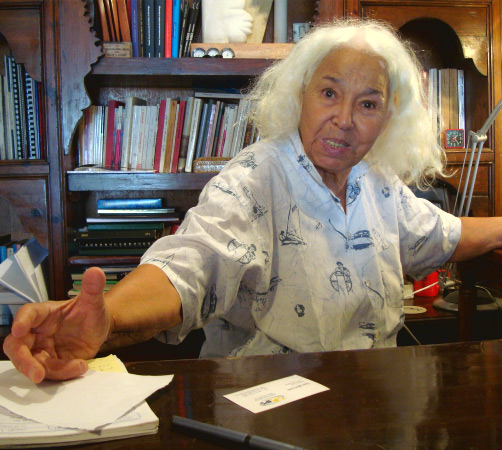
---------------------------
زیرنویسها:
۱- نوال السعداوی نویسنده، فمینیست و مبارز سرشناس ضد بنیادگرایی فعال اجتماعی، و پزشک مصری زاده ۲۷ اکتبر ۱۹۳۱ است. نوال سعداوی معتقد است پیش از آنکه یک فمینیست باشد، نویسنده و داستاننویس است سعداوی درسال ۱۹۵۵ لیسانس پزشکی وجراحی را از دانشگاه قاهره وفوق لیسانس پزشکی را در سال ۱۹۶۵ از دانشگاه کلمبیای نیویورک گرفت و در دانشگاه «عین شمس» قاهره به بررسی علمی - موضوعی درباره روان شناسی پرداخت. او علاوه بر زبان عربی با دو زبان انگلیسی وفرانسه آشنا است. در حاشیه ماندن زنان، برای سعداوی، همیشه پرسش برانگیز بوده است. او، فقدان دموکراسی وآزادی را در مصر، عامل عقب ماندگی وناآگاهی هموطنانش میداند. آشنایی خوانندگان عرب با نوال سعداوی، بانخستین رمان او خاطرات یک زن پزشک بود. وی پس از آن به نگارش رمانهای دیگری پرداخت: زنی در نقطه صفر، دو زن در یک زن، » (عشق در زمان نفت) و چند داستان کوتاه دیگر. به گمان برخی، سعداوی بزرگترین نماینده زنان رمان نویس عرب است که در رمانهایش بیش از همه به زندگی خود پرداخته است. کتابهای ترجمه شده به فارسی:چهره عریان زن عرب، نوال سعداوی، ۱۳۵۹، خورشیدیزن، دین و اخلاق، در ایران با نام نیمه دیگر؛ نابرابری حقوقی زن در بوته نقد ۱۳۸۲
۲- فاطمه مرنیسی (به فرانسوی Fatima Mernissi) فعالحقوق زنان،نویسنده جامعهشناس مراکشی او علوم سیاسی را د دانشگاه سوربن و سپس دانشگاه براندیس آموخت و از آنجا دکتری گرفت. مطالعات او بیشتر درباره جامعهشناسی، زنان و نقش آنان در اسلام، و فمینیسم اسلامی ست.
۳- گفتگوی السعداوی در سی ژانویه به نقل از نشریهی دیدگاه فمینیستی سوئد: من شادمانم! هشتاد سال سن دارم و شادمانم از دیدن چنین روزهایی در مصر، شادمانم از اینکه میتوانم در این انقلاب مشارکت داشته باشم، چیزی که رویایش را داشتم. من هر روز در تظاهرات خیابانی شرکت میکنم.
- ما از بنیادگرایی اسلامی نمیترسیم. شما باید بدانید که میلیونها مرد و زن در خیابانها هستند. این اعتراضات ربطی به چپ، راست، اسلام گرا یا هر جنبش سیاسی دیگر ندارد. مردم از بیکاری و سرکوب اعمال شده توسط رژیم مبارک به ستوه آمدهاند. هیچ حزب سیاسی این انقلاب را شروع نکرده است، این یک جنبش خودانگیخته و مردمی است. احزاب سیاسی در تلاشند که جزئی از آن باشند و یا از آن سواستفاده کنند. یعنی زمانی که مردم تصمیم به اعتراض با خواست تغییر را گرفتند و به خیابانها رفتند، آن وقت بود که چپ و راست به آنها پیوستند. مردم مصر سرانجام به این نتیجه رسیدهاند که همگام با یکدیگر یک صدا فریاد آزادی، عدالت اجتماعی، حرمت انسانی، استقلال و برابری سردهند. چیزی که اکنون در جریان است جنبشی خودجوش و متعلق به جوانان است و نه هیچ جریان سیاسی.
این رژیم کتابهای مرا ممنوع کرد. اما جوانان کتابهای ممنوعه را خواندند زنان در جریان انقلاب مشارکت دارند. این رژیم پس از آخرین انقلاب در مصر بسیاری از حقوق زنان را از آنها گرفت! امروز ما بسیار مراقبیم و اجازه نخواهیم داد که این اتفاق تکرار شود و ساکت نخواهیم ماند. این همان چیزی است که میخواهم به زنان تونسی هم بگویم. باید به خطری که حقوقشان را تهدید میکند آگاه باشند و تسلیم نشوند.
- از ما حمایت کنید! مقابل سفارت مصر در کشورهایتان بروید و حمایت خود را از مردم و خواستهایشان نشان دهید.
۴- سیمون دو بووار فیلسوف، نویسنده، فمینیست و اگزیستانسیالیست فرانسوی بود که در ۹ ژانویه، ۱۹۰۸ در پاریس در خانوادهای بورژوا به دنیا آمد. بووار به عنوان مادر فمینیسم بعد از ۱۹۶۸ شناخته میشود. معروفترین اثر وی جنس دوم نام دارد که در سال ۱۹۴۹نوشته شدهاست. این کتاب به تفصیل به تجزیه و تحلیل ستمی که در طول تاریخ به جنس زن شدهاست میپردازد. پس از آنکه این کتاب چند سال پس از چاپ فرانسه، به انگلیسی ترجمه و در آمریکا منتشر شد، به عنوان مانیفست فمینیسم شناخته شد.
۵- آلیس شوارتزر یکی از سرشناسترین چهرههای فمینیستی جنبش نوین زنان آلمان است در ۲۶ ژانویهی ۱۹۷۷ اولین شمارهی ماهنامهی اما (Emma) را در کلن منتشر کرد که تا به امروز، موفقترین مجلهی فمنیستی سیاسی زنان در سراسر اروپاست.
شوارتزر در سال ۱۹۷۹، درمصاحبهای که پس از سفرش به ایران داشت، زن ستیزی بنیادگرایان اسلامی را در این کشور مطرح کرد.
شوارتزر، در کنار فعالیتهای ژورنالیستی خود، به نوشتن کتاب هم پرداخته است. از میان آثار او،به ویژه زندگینامههای زنان مشهور آلمان، چون رومی اشنایدر و ماریون گرفین دونهوف، (Marion Gräfin Dönhoff) که از ۱۹۶۸ تا ۱۹۷۳ سردبیر و صاحب امتیاز هفتهنامهی معتبر "دی تسایت" بود، اهمیت خاصی دارند. شوارتزر همچنین در سال ۲۰۰۲، کتاب "آلیس در سرزمین مردان" را منتشر کرد که در آن کارنامهی ۳۰ سال فعالیتهای فمینیستی در آلمان ارائه شده است. در همین سال آلیس شوارتزر کتاب دیگری با عنوان "یک تفاوت بزرگ"، به بازار عرضه کرد که در آن "تقسیم انسان به زن و مرد" را به باد انتقاد گرفته.
* عفت ماهباز، نویسنده و فعال اجتماعی - حقوق بشر، حقوق زنان. در ایران در رشته ادبیات انگلیسی و علوم آزمایشگاهی تحصیل نمود. به دلیل انقلاب فرهنگی و زندانی شدن درسش ناتمام ماند. برادرش علی ماهباز و همسرش علیرضا اسکندری را در زندان اوین اعدام کردند. خود او هفت سال در زندان اوین زندانی بود. در رشته فیمینیسم و تاریخ مطالعات زنان، در دانشگاه دورتموند آلمان ادامه تحصیل داد. اولین کتاب عفت ماهباز، "زنان ایران چراغی دردست چراغی در راه" که مجموعه گفت گوهای وی با فعالان جنبش زنان ایران است توسط نشر باران منتشر شده است و آخرین کتاب او "فراموشم مکن" خاطرات عفت از زندان است. این کتاب نیز توسط نشر باران منتشر شده است.
How March 8 passes through Egypt?
A letter to the renowned Egyptian Feminist Writer[1], Nawal El Saadawi
By: Effat Mahbaz
Mubarak has gone where the ‘Shah went’. They both followed the path that is the fate of all dictators but, has Egypt been liberated?!
Dear Nawal, the comrade in battle alongside the women of the world!
At the doorsteps of March 8, the international women’s day, I would like to voice the concerns and worries of Iranian Women movement, both mine and my generation, about the future of Egyptian women and the region. I would like to speak with you about this. You, who thought us the alphabet of Feminism,. On one hand, you were talking of tolerance towards the women whose fate had been depicted by religion and on the other hand your fight with fundamentalism and in defense of secularism was just simply amazing. Islamic Feminism that was introduced to the world with your signature and that of Fatima Mernissi[2] created a dialogue full of debates.
The spark to fight dictatorship, for freedom, and to demolish poverty was ignited in Tunisia this time. The fire then spread throughout the Middle East. It engulfed in Egypt and brought a tactical victory to people. Although lots of women activists have followed the news of your struggle with the dictator passionately but all of them, like myself, are also concerned about the question of ‘what happens next?’. What would be the fate of our sisters in Egypt’s rapid developments? Would they be free and treated equal or would their freedom would be restricted even more than what they have now by law? And whether….would Egypt join the free world?
Dear Nawal,
In your interview with Feministiskt Perspektiv, the whole world could see your passion and fervor for the revolution taking place on the streets of Egypt. You said: “I am happy! I am 80 years old and so happy to experience these days. I have dreamed of this revoltuion.”[3] Hanging on to the wings of your dream, you were flying in the skies. This reminded me of the indescribable joy and happiness that Iranian women felt when in 1979 the dictator, the ‘Shah left’.
Iranian women, in solidarity with Egyptian people, are witnessing your happiness. However, my dear teacher, the restless passionate nineteen years old girl in 1979 who rode at the back of a pickup track and chanted alongside the other people on the streets and alleys of Tehran: “Shah’s down, now it’s USA’s turn”, this girl and her comrades in Iran and the rest of the world are worried. They are not of course worried about the disappearance of dictators: “Mubarak’s gone” where “Shah went”. They both followed the path that is the fate of all dictators but, has Egypt been liberated?!
Freedom felt real at the eve of February 11, 1979 when ‘Shah went’. Even after the passing of thirty two long years and despite all that happened to us since then, we could still feel the glory of those moments. But, in exile today, I’m writing to you to express my fear of history repeating itself; this time in Egypt and for the women of Egypt: to suffer what we suffered, to have the same fate as ours. This is the source of my tremendous anxiety and the concerns of all those women in the world who have been witnessed the pain and anguish which we, Iranian women, have been through. Our question is how could we direct the revolution in Egypt, Tunisia, and the Middle East so that it wouldn’t fall into the hands of the radical fanatics? We fear they dream the Iranian women’s fate for your fellow women.
In your interview you mentioned: “We are not afraid of Islamic fundamentalists. You must know that millions of men and women are on the streets. It is not about right or left, about Islamists or any other political movement. People are frustrated about poverty and Mubarak's regime. No political party has started this revolt... What is going on now is a movement that belongs to the young people and nobody else.” [3]
Dear Nawal!
You might say that Egypt is different than Iran; that majority in Iran are Shia but most Egyptians are Sunni. However, what you described above as the characteristics of the Egypt’s movement mirrors those of Iran’s revolution when it just started. In the process, “Shah left” and Ayatollah Khomeini came with promises of democracy for all and freedom for women. The ayatollah said he was not going to rule and he appointed the man in suits and a tie, Mr. Bazargan, as Prime Minister.
Al-Ikhwān has been fighting dictators in Egypt for more than 80 years. Nowadays, they say that they believe in democracy; that they don’t want to rule. They even appointed Mr. ElBaradei as their deputy but a few days after saying so, they were the first to sit at the negotiation table with Mubarak. Please allow me to tell you something I witnessed in Montreal, Canada when I attended a demonstration.
You asked the world: “Support us! Go into the streets, outside the Egyptian Embassy and support people[3].” We did so.
I’m in Montreal for a personal affair. Friday, February 5th, I and some other Iranian friends joined a group of Canadian-Egyptians and in solidarity with Egyptian people we demonstrated in front of Egypt’s consulate. Together we chanted in Arabic, English, and French: “La Mubarak, La Mubarak, La Salim” and some other slogans in solidarity with the people of Egypt and Tunisia. There were close to five hundred people in the demonstration. I was holding a placard in my hand, resembling the flag of Iran but instead of Islamic Republic’s sign in the middle of the flag, there was the word “Iran”. On the other side of this placard, there was a slogan in support of people in Egypt and Tunisia. At one of the city’s square, suddenly an Egyptian man who was chanting the same slogans came to me and in a harsh dominating voice, he unleashed an insult at me: “Death to the enemies of Khamenei (the supreme leader of Iran)”! He asked firmly: “Why are you holding this flag? This is not the flag of Iran!”. I was in shock and I could not understand what he was talking about. After few seconds I managed to say that the flag was my flag and it belonged to me and only myself and that I was there to support Egyptian people!
Speaking with other Iranian friends there, I noticed this man had insulted almost all of them in the same way. Is it that he was Mr. Ahmadinejad (Iran’s president) or Khamenei’s deputy and that was the reason for him attacking us? Certainly not. He was one of the victims of dictatorship. Like myself, he was chanting ‘La Mubarak, La Mubark’ and for sure his presence there was more justified than mine but he was also supporting a government such as Islamic Republic of Iran. Is this not alarming?
Is it possible that ‘Sharia Laws’ become official in Egypt in the midst of the twenty first century? Could this time Islamic fundamentalism, using sex discrimination, sacrifice Egyptian women at the altar built by the dominant religious patriarchs? Could history repeat what went on during the past thirty two years in Iran? In Catholic dominant Canada, the women activists prevented the establishment of ‘sharia courts’. In England this is an open issue and the Church is trying to have Muslim men in Europe to benefit from ‘Sharia Laws’.
My teacher, Dear Nawal!
As an Iranian Feminist woman I would like to tell you briefly what we experienced during the first days after the revolution. From the bottom of my heart I wish the brave women of Egypt and Tunisia and Jordan and the rest of the world read and understand what happened to Iranian women so that they learn how to progress to the point of equal rights with men and not, like us, being considered half a man.
My dear Nawal!
Together with other Iranian women we were bathing in joy during the 1979 revolution. Those days Simon de Beauvoir[4], the mother of the feminists of the world, was alive and living in France. She sent a team of seventeen feminist women from all parts of the world to Iran, for solidarity with and mental support to Iranian women. February 11, 2011 – the day Mubarak left and thirty two years back – Iranian revolution triumphed. Fifteen days later, the ‘Sharia Laws’ were established when Ayatollah Khomeini issues four statements:
February 26, 1979. Cancellation of the law protecting the rights of divorcee women based on a letter written by the office of Ayatollah Khomeini. The protection law was in effect since 1968.
March 3, 1979. Cancellation of the women’s right to be employed as judges in the courts of law.
March 6, 1979. Cancellation of the women’s right to be employed by the armed forces even if serving as soldiers at the time.
March 7, 1979. Mandatory ‘hijab’ for women employed by government and private sectors based on Khomeini’s speech in the city of Qom.
And, just like that, with the issuance of those four statements half of the population saw themselves in chains. In fact, it was freedom which was imprisoned.
One day after Khomeini’s speech, women celebrated their international day by marching in the streets. The first group to protest the mandatory hijab was the female lawyers. The nurses union joined them later. These were the women who truly understood the meaning of the four statements. The lawyers had a sit in protest in the office of judicial affairs and then they took to the streets to chant: “We didn’t participate in the revolution to return to the dark ages”. They believed their demands for women rights must be heard by officials. They knew it would be too late for that by the time the new constitution was in effect. So, they yelled in vain: “Freedom without women does not exist”, “We don’t want mandatory hijab”, “Women fight for bread and freedom”, “Every moment of my life, even in the torture chamber, I sing proudly: Either freedom or Death”. And, they chanted Iran’s national anthem.
Women demonstrated in Tehran’s university a day later. They had a sit in protest in front of the office of judicial affairs. Three days later they walked the streets of Tehran from Tehran university to Azadi square. They said women and men, both, participated in the revolution and that there were up to four thousands of women political prisoners in Shah’s era. To voice their anger at Sadeq Qotbzadeh, the head of the national radio-television station for not covering the news of their protests, they marched towards his office. The basijis (members of Islamic militia formed during the days after the revolution), however, stood on their way and they shot their guns to disperse the crowd and they called these fearless women a bunch of whores and prostitutes….and women shouted: “Not scared, we are not scared”.
In each day of the week that followed fifteen to twenty thousand women marched on the streets, demanding loudly: “Our rights are human rights, join us in our struggle”. However, the fever that revolution had planted in the heart and soul of people prevented women’s plea to be heard. There was no news coverage for such an important issue by media either. People did not realize the blow to their freedom and a group of fanatics by the name of ‘Hezbollah’, swinging their fists and clubs in the air and chanting ‘Allah u Akbar’, finally silenced women. The government not only did not prevent Hezbollah attacks but also supported them. One part of the left was busy with their guns and their internal conflicts while the other part believed the Imperialism was the main enemy and the women fight for their rights not only was insignificant but also it was in the direction of bourgeois. They too failed to see what was happening to women. They too did not hear women’s slogan: “Freedom does not belong to East, nor it belongs to West. Freedom is Universal”. Women were left alone in their struggle for equal rights. So, they chanted in vain: “Our rights are human rights, join us in our struggle”. No one joined them and in the midst of all these, nobody knew that seventeen women were stoned to death in a soccer stadium in Tehran. Nor did anyone know that the official age for girls to marry changed from eighteen to nine. This followed by disallowing women from applying for divorce. So, the Sharia Law was in full force and it determined the fate of women. Those four statements changed the course of the history for Iranian women in particular and the society in general. Those who chanted “Every moment of my life, even in the torture chamber, I sing proudly: Either freedom or Death”, were imprisoned, tortured, and some executed. I belong to those lucky enough to emerge from the torture chambers alive. Some of those women were forced to flee to other countries. Even now women are still alone although their struggle during the past thirty two years has produced several strong proud women whose lives and fights have presented to the world a new view in women’s battle for freedom.
Alice Schwarzer[5] was among the seventeen women who came to Iran right after the revolution to express their solidarity and lending a hand to Iranian women. At that time, she saw the dawn of fundamentalism with her own eyes. These women were asked to cover their hair if they wanted to visit Khomeini. Alice did not go to meet with Khomeini and when she returned to Germany, she described the fate of Iranian women in EMMA. She wrote: “A masculine revolution against women” has taken place in Iran.
Dear Nawal!
We had no idea what direction we were going back then. Our nice dreams turned into nightmares and it took a long time to regain our consciousness and to ask ourselves where we were standing in the course of the history. Do not allow the dreams of Egyptian women end up in nightmares. Especially that they have a supporter like you.
With the best wishes for your victory and believing in freedom for people of Egypt and Egyptian women.
Effat Mahbaz
February 12, Montreal
http://efatmahbaz.com/
.(JavaScript must be enabled to view this email address)
-------------
Effat Mahbaz, is a writer, social and human rights activist. She is also a women rights activist. She studied English literature and Biological science in Iran but she could not finish university because she was imprisoned for her political views. Her brother, Ali Mahbaz, and husband, Alireza Eskandari, were executed in Evin prison. Effat spent seven years in prison. After being forced into exile, she continued her academic curriculum in university of Dortmond, Germany in the fields of Feminism and the History of Women Studies. Effat’s first book is a collection of interviews with Iranian female activists and her last book contains her memoir of seven years in prison. Both books have been published by ‘Baran’ publication in Sweden.
(1) - Nawal El Saadawi (born October 27, 1931) is an Egyptian feminist, writer, activist, physician and psychiatrist. She has written many books on the subject of ‘women in Islam’. Saadawi graduated as a medical doctor in 1955 from cairo University. Saadawi began writing early in her career. Her earliest writings include a selection of short stories entitled I Learned Love (1957) and the novel Memoirs of a Woman Doctor (1958). She has since written numerous novels and short stories. Saadawi has been published in a number of anthologies, and her work has been translated into over 20 languages. In 1972, she published her first work of non-fiction, Women and Sex, which evoked the antagonism of highly placed political and theological authorities and led to a dismissal at the Ministry of Health. Other works include The Hidden Face of Eve, God Dies by the Nile, The Circling Song, Searching, The Fall of the Imam and Woman at Point Zero.
(2) Fatema or Fatima Mernissi is a Moroccan feminist writer and sociologist.
Mernissi was born into a middle-class family in Fez in 1940. In 1957, she studied political science at the Sorbonne and at Brandeis University, where she earned her doctorate. She taught at the Faculté des Lettres between 1974 and 1981 on subjects such as methodology, family sociology and psychosociology. She has become noted internationally mainly as an Islamic feminist.
(3) – Interview with Feministiskt Perspektiv journal, January 30, 2011.
(4) - Simone-Ernestine-Lucie-Marie Bertrand de Beauvoir, often shortened to Simone de Beauvoir; January 9, 1908 – April 14, 1986), was a French existentialist philosopher, public intellectual, and social theorist. She wrote novels, essays, biographies, an autobiography in several volumes, and monographs on philosophy, politics, and social issues. She is now best known for her metaphysical novels, including She Came to Stay and The Mandarins, and for her 1949 treatise The Second Sex, a detailed analysis of women's oppression and a foundational tract of contemporary feminism. The Second Sex (French: Le Deuxième Sexe, June 1949) a work on the treatment of women throughout history and often regarded as a major work of feminist literature.
(5) - Alice Schwarzer (born December 3, 1942 in Wuppertal) is the most prominent contemporary German feminist. She is founder and publisher of the German feminist journal EMMA. Following her trip to Iran in 1979, she accused Islamic fundamentalists in Iran for their opposition to women rights. When her journal EMMA changed to bimonthly release in 1993, she continued to write an increasing number of books, among them one about Petra Kelly and Gert Bastian, and biographies of Romy Schneider and Marion Donhoff. In total she has released 16 books as a writer, and 15 as publisher.
How March 8 passes through Egypt?
A letter to the renowned Egyptian Feminist Writer[1], Nawal El Saadawi
By: Effat Mahbaz
Mubarak has gone where the ‘Shah went’. They both followed the path that is the fate of all dictators but, has Egypt been liberated?!
Dear Nawal, the comrade in battle alongside the women of the world!
At the doorsteps of March 8, the international women’s day, I would like to voice the concerns and worries of Iranian Women movement, both mine and my generation, about the future of Egyptian women and the region. I would like to speak with you about this. You, who thought us the alphabet of Feminism,. On one hand, you were talking of tolerance towards the women whose fate had been depicted by religion and on the other hand your fight with fundamentalism and in defense of secularism was just simply amazing. Islamic Feminism that was introduced to the world with your signature and that of Fatima Mernissi[2] created a dialogue full of debates.
The spark to fight dictatorship, for freedom, and to demolish poverty was ignited in Tunisia this time. The fire then spread throughout the Middle East. It engulfed in Egypt and brought a tactical victory to people. Although lots of women activists have followed the news of your struggle with the dictator passionately but all of them, like myself, are also concerned about the question of ‘what happens next?’. What would be the fate of our sisters in Egypt’s rapid developments? Would they be free and treated equal or would their freedom would be restricted even more than what they have now by law? And whether….would Egypt join the free world?
Dear Nawal,
In your interview with Feministiskt Perspektiv, the whole world could see your passion and fervor for the revolution taking place on the streets of Egypt. You said: “I am happy! I am 80 years old and so happy to experience these days. I have dreamed of this revoltuion.”[3] Hanging on to the wings of your dream, you were flying in the skies. This reminded me of the indescribable joy and happiness that Iranian women felt when in 1979 the dictator, the ‘Shah left’.
Iranian women, in solidarity with Egyptian people, are witnessing your happiness. However, my dear teacher, the restless passionate nineteen years old girl in 1979 who rode at the back of a pickup track and chanted alongside the other people on the streets and alleys of Tehran: “Shah’s down, now it’s USA’s turn”, this girl and her comrades in Iran and the rest of the world are worried. They are not of course worried about the disappearance of dictators: “Mubarak’s gone” where “Shah went”. They both followed the path that is the fate of all dictators but, has Egypt been liberated?!
Freedom felt real at the eve of February 11, 1979 when ‘Shah went’. Even after the passing of thirty two long years and despite all that happened to us since then, we could still feel the glory of those moments. But, in exile today, I’m writing to you to express my fear of history repeating itself; this time in Egypt and for the women of Egypt: to suffer what we suffered, to have the same fate as ours. This is the source of my tremendous anxiety and the concerns of all those women in the world who have been witnessed the pain and anguish which we, Iranian women, have been through. Our question is how could we direct the revolution in Egypt, Tunisia, and the Middle East so that it wouldn’t fall into the hands of the radical fanatics? We fear they dream the Iranian women’s fate for your fellow women.
In your interview you mentioned: “We are not afraid of Islamic fundamentalists. You must know that millions of men and women are on the streets. It is not about right or left, about Islamists or any other political movement. People are frustrated about poverty and Mubarak's regime. No political party has started this revolt... What is going on now is a movement that belongs to the young people and nobody else.” [3]
Dear Nawal!
You might say that Egypt is different than Iran; that majority in Iran are Shia but most Egyptians are Sunni. However, what you described above as the characteristics of the Egypt’s movement mirrors those of Iran’s revolution when it just started. In the process, “Shah left” and Ayatollah Khomeini came with promises of democracy for all and freedom for women. The ayatollah said he was not going to rule and he appointed the man in suits and a tie, Mr. Bazargan, as Prime Minister.
Al-Ikhwān has been fighting dictators in Egypt for more than 80 years. Nowadays, they say that they believe in democracy; that they don’t want to rule. They even appointed Mr. ElBaradei as their deputy but a few days after saying so, they were the first to sit at the negotiation table with Mubarak. Please allow me to tell you something I witnessed in Montreal, Canada when I attended a demonstration.
You asked the world: “Support us! Go into the streets, outside the Egyptian Embassy and support people[3].” We did so.
I’m in Montreal for a personal affair. Friday, February 5th, I and some other Iranian friends joined a group of Canadian-Egyptians and in solidarity with Egyptian people we demonstrated in front of Egypt’s consulate. Together we chanted in Arabic, English, and French: “La Mubarak, La Mubarak, La Salim” and some other slogans in solidarity with the people of Egypt and Tunisia. There were close to five hundred people in the demonstration. I was holding a placard in my hand, resembling the flag of Iran but instead of Islamic Republic’s sign in the middle of the flag, there was the word “Iran”. On the other side of this placard, there was a slogan in support of people in Egypt and Tunisia. At one of the city’s square, suddenly an Egyptian man who was chanting the same slogans came to me and in a harsh dominating voice, he unleashed an insult at me: “Death to the enemies of Khamenei (the supreme leader of Iran)”! He asked firmly: “Why are you holding this flag? This is not the flag of Iran!”. I was in shock and I could not understand what he was talking about. After few seconds I managed to say that the flag was my flag and it belonged to me and only myself and that I was there to support Egyptian people!
Speaking with other Iranian friends there, I noticed this man had insulted almost all of them in the same way. Is it that he was Mr. Ahmadinejad (Iran’s president) or Khamenei’s deputy and that was the reason for him attacking us? Certainly not. He was one of the victims of dictatorship. Like myself, he was chanting ‘La Mubarak, La Mubark’ and for sure his presence there was more justified than mine but he was also supporting a government such as Islamic Republic of Iran. Is this not alarming?
Is it possible that ‘Sharia Laws’ become official in Egypt in the midst of the twenty first century? Could this time Islamic fundamentalism, using sex discrimination, sacrifice Egyptian women at the altar built by the dominant religious patriarchs? Could history repeat what went on during the past thirty two years in Iran? In Catholic dominant Canada, the women activists prevented the establishment of ‘sharia courts’. In England this is an open issue and the Church is trying to have Muslim men in Europe to benefit from ‘Sharia Laws’.
My teacher, Dear Nawal!
As an Iranian Feminist woman I would like to tell you briefly what we experienced during the first days after the revolution. From the bottom of my heart I wish the brave women of Egypt and Tunisia and Jordan and the rest of the world read and understand what happened to Iranian women so that they learn how to progress to the point of equal rights with men and not, like us, being considered half a man.
My dear Nawal!
Together with other Iranian women we were bathing in joy during the 1979 revolution. Those days Simon de Beauvoir[4], the mother of the feminists of the world, was alive and living in France. She sent a team of seventeen feminist women from all parts of the world to Iran, for solidarity with and mental support to Iranian women. February 11, 2011 – the day Mubarak left and thirty two years back – Iranian revolution triumphed. Fifteen days later, the ‘Sharia Laws’ were established when Ayatollah Khomeini issues four statements:
February 26, 1979. Cancellation of the law protecting the rights of divorcee women based on a letter written by the office of Ayatollah Khomeini. The protection law was in effect since 1968.
March 3, 1979. Cancellation of the women’s right to be employed as judges in the courts of law.
March 6, 1979. Cancellation of the women’s right to be employed by the armed forces even if serving as soldiers at the time.
March 7, 1979. Mandatory ‘hijab’ for women employed by government and private sectors based on Khomeini’s speech in the city of Qom.
And, just like that, with the issuance of those four statements half of the population saw themselves in chains. In fact, it was freedom which was imprisoned.
One day after Khomeini’s speech, women celebrated their international day by marching in the streets. The first group to protest the mandatory hijab was the female lawyers. The nurses union joined them later. These were the women who truly understood the meaning of the four statements. The lawyers had a sit in protest in the office of judicial affairs and then they took to the streets to chant: “We didn’t participate in the revolution to return to the dark ages”. They believed their demands for women rights must be heard by officials. They knew it would be too late for that by the time the new constitution was in effect. So, they yelled in vain: “Freedom without women does not exist”, “We don’t want mandatory hijab”, “Women fight for bread and freedom”, “Every moment of my life, even in the torture chamber, I sing proudly: Either freedom or Death”. And, they chanted Iran’s national anthem.
Women demonstrated in Tehran’s university a day later. They had a sit in protest in front of the office of judicial affairs. Three days later they walked the streets of Tehran from Tehran university to Azadi square. They said women and men, both, participated in the revolution and that there were up to four thousands of women political prisoners in Shah’s era. To voice their anger at Sadeq Qotbzadeh, the head of the national radio-television station for not covering the news of their protests, they marched towards his office. The basijis (members of Islamic militia formed during the days after the revolution), however, stood on their way and they shot their guns to disperse the crowd and they called these fearless women a bunch of whores and prostitutes….and women shouted: “Not scared, we are not scared”.
In each day of the week that followed fifteen to twenty thousand women marched on the streets, demanding loudly: “Our rights are human rights, join us in our struggle”. However, the fever that revolution had planted in the heart and soul of people prevented women’s plea to be heard. There was no news coverage for such an important issue by media either. People did not realize the blow to their freedom and a group of fanatics by the name of ‘Hezbollah’, swinging their fists and clubs in the air and chanting ‘Allah u Akbar’, finally silenced women. The government not only did not prevent Hezbollah attacks but also supported them. One part of the left was busy with their guns and their internal conflicts while the other part believed the Imperialism was the main enemy and the women fight for their rights not only was insignificant but also it was in the direction of bourgeois. They too failed to see what was happening to women. They too did not hear women’s slogan: “Freedom does not belong to East, nor it belongs to West. Freedom is Universal”. Women were left alone in their struggle for equal rights. So, they chanted in vain: “Our rights are human rights, join us in our struggle”. No one joined them and in the midst of all these, nobody knew that seventeen women were stoned to death in a soccer stadium in Tehran. Nor did anyone know that the official age for girls to marry changed from eighteen to nine. This followed by disallowing women from applying for divorce. So, the Sharia Law was in full force and it determined the fate of women. Those four statements changed the course of the history for Iranian women in particular and the society in general. Those who chanted “Every moment of my life, even in the torture chamber, I sing proudly: Either freedom or Death”, were imprisoned, tortured, and some executed. I belong to those lucky enough to emerge from the torture chambers alive. Some of those women were forced to flee to other countries. Even now women are still alone although their struggle during the past thirty two years has produced several strong proud women whose lives and fights have presented to the world a new view in women’s battle for freedom.
Alice Schwarzer[5] was among the seventeen women who came to Iran right after the revolution to express their solidarity and lending a hand to Iranian women. At that time, she saw the dawn of fundamentalism with her own eyes. These women were asked to cover their hair if they wanted to visit Khomeini. Alice did not go to meet with Khomeini and when she returned to Germany, she described the fate of Iranian women in EMMA. She wrote: “A masculine revolution against women” has taken place in Iran.
Dear Nawal!
We had no idea what direction we were going back then. Our nice dreams turned into nightmares and it took a long time to regain our consciousness and to ask ourselves where we were standing in the course of the history. Do not allow the dreams of Egyptian women end up in nightmares. Especially that they have a supporter like you.
With the best wishes for your victory and believing in freedom for people of Egypt and Egyptian women.
Effat Mahbaz
February 12, Montreal
http://efatmahbaz.com/
.(JavaScript must be enabled to view this email address)
-------------
Effat Mahbaz, is a writer, social and human rights activist. She is also a women rights activist. She studied English literature and Biological science in Iran but she could not finish university because she was imprisoned for her political views. Her brother, Ali Mahbaz, and husband, Alireza Eskandari, were executed in Evin prison. Effat spent seven years in prison. After being forced into exile, she continued her academic curriculum in university of Dortmond, Germany in the fields of Feminism and the History of Women Studies. Effat’s first book is a collection of interviews with Iranian female activists and her last book contains her memoir of seven years in prison. Both books have been published by ‘Baran’ publication in Sweden.
(1) - Nawal El Saadawi (born October 27, 1931) is an Egyptian feminist, writer, activist, physician and psychiatrist. She has written many books on the subject of ‘women in Islam’. Saadawi graduated as a medical doctor in 1955 from cairo University. Saadawi began writing early in her career. Her earliest writings include a selection of short stories entitled I Learned Love (1957) and the novel Memoirs of a Woman Doctor (1958). She has since written numerous novels and short stories. Saadawi has been published in a number of anthologies, and her work has been translated into over 20 languages. In 1972, she published her first work of non-fiction, Women and Sex, which evoked the antagonism of highly placed political and theological authorities and led to a dismissal at the Ministry of Health. Other works include The Hidden Face of Eve, God Dies by the Nile, The Circling Song, Searching, The Fall of the Imam and Woman at Point Zero.
(2) Fatema or Fatima Mernissi is a Moroccan feminist writer and sociologist.
Mernissi was born into a middle-class family in Fez in 1940. In 1957, she studied political science at the Sorbonne and at Brandeis University, where she earned her doctorate. She taught at the Faculté des Lettres between 1974 and 1981 on subjects such as methodology, family sociology and psychosociology. She has become noted internationally mainly as an Islamic feminist.
(3) – Interview with Feministiskt Perspektiv journal, January 30, 2011.
(4) - Simone-Ernestine-Lucie-Marie Bertrand de Beauvoir, often shortened to Simone de Beauvoir; January 9, 1908 – April 14, 1986), was a French existentialist philosopher, public intellectual, and social theorist. She wrote novels, essays, biographies, an autobiography in several volumes, and monographs on philosophy, politics, and social issues. She is now best known for her metaphysical novels, including She Came to Stay and The Mandarins, and for her 1949 treatise The Second Sex, a detailed analysis of women's oppression and a foundational tract of contemporary feminism. The Second Sex (French: Le Deuxième Sexe, June 1949) a work on the treatment of women throughout history and often regarded as a major work of feminist literature.
(5) - Alice Schwarzer (born December 3, 1942 in Wuppertal) is the most prominent contemporary German feminist. She is founder and publisher of the German feminist journal EMMA. Following her trip to Iran in 1979, she accused Islamic fundamentalists in Iran for their opposition to women rights. When her journal EMMA changed to bimonthly release in 1993, she continued to write an increasing number of books, among them one about Petra Kelly and Gert Bastian, and biographies of Romy Schneider and Marion Donhoff. In total she has released 16 books as a writer, and 15 as publisher.
|
| |||||||||||||
|
ايران امروز
(نشريه خبری سياسی الکترونیک)
«ايران امروز» از انتشار مقالاتی كه به ديگر سايتها و نشريات نيز ارسال میشوند معذور است. استفاده از مطالب «ايران امروز» تنها با ذكر منبع و نام نويسنده يا مترجم مجاز است.
Iran Emrooz©1998-2025 | editor@iran-emrooz.net
|
